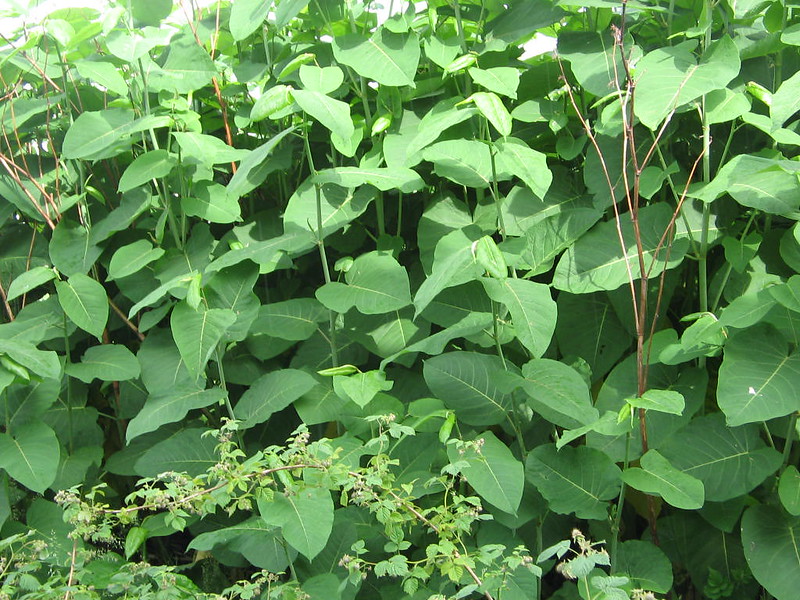As homeowners up and down the country are becoming more aware of the damage that can be caused to their properties as a result of a Japanese knotweed infestation, it is becoming an increasingly dreaded sight.

Photo by dankogreen (Flickr)
Initially embraced by Victorian gardeners for its beauty, Japanese knotweed quickly became an invasive presence that threatens to damage micro-ecosystems, roads and properties. But is knotweed really that bad? Let's take a look at some of the facts:
- Knotweed can grow up to 10cm per day during peak season
- Eradicating knotweed is very difficult on your own and requires professional help to avoid the risk of further spread
- Its spread and growth in the UK has caused house and land prices to fall as much as 40%
From these facts alone, you can see why so many homeowners in the UK are fearful of a knotweed infestation on or around their property. One way to limit the risk of an infestation is to try to prevent the spread of knotweed where possible but in order to do so, we must first understand how Japanese knotweed spreads in the first place. So, let's find out!
Spreading Japanese Knotweed
Since we've already mentioned the rate at which knotweed can grow (10cm per day), we can now dive into how it spreads further afield.
Japanese knotweed has the ability to produce seeds, but surprisingly, these seeds do not germinate. Instead, the weed spreads via the stem, rhizome and crown in the following ways.
Stem
Fresh Japanese knotweed plants can grow from the nodes of the green stem in both water and soil.
Rhizome
Even the smallest piece of knotweed rhizome can grow into a full plant. By breaking up the rhizome into small pieces, you can stimulate it to create small buds which then grow to form each new plant. To avoid this, be sure to never accept topsoil that hasn't been checked as you may be spreading rhizomes without ever knowing.
Crown
That crown forms part of the knotweed's stem and is able to survive both composting and drying. If you want to dispose of using either the method of drying or composting, make sure you cut the stems right above the crown. Knotweed is able to spread by producing new canes once it comes into contact with soil or water.
How far does Japanese knotweed spread?
There is no limit to how far a Japanese knotweed infestation can spread, which is why it has become such a nuisance for so many in the UK over the last decade or so. If it is given the right amount of space and nutrients, it is able to grow indefinitely. Also, as a result of the speed and ease with which knotweed can spread, it has been labelled as an invasive weed by the UK government.
How to stop Japanese knotweed from spreading
Few methods exist which help to stop the spreading of Japanese knotweed. However, these techniques often require professional help in order to be effective. Removing Japanese knotweed usually involves a combination of methods which includes excavation, herbicidal spray, burning and burial to prevent rhizomes from successfully surfacing shoots.
If you believe you have spotted Japanese knotweed on or near your property and would like professionals to come out and take a look, Total Weed Control are here to help! Our team of experienced professionals can survey your property and confirm whether knotweed is present. If it is, we are then able to construct a dedicated programme aimed at removing and stopping further spread of the plant.
To learn more about our expert knotweed services, click here. If you would like to get in touch with a member of our team, fill out our quick and easy form below - we look forward to hearing from you!
Don't miss an update - be sure to follow Total Weed Control on Facebook and Twitter!
